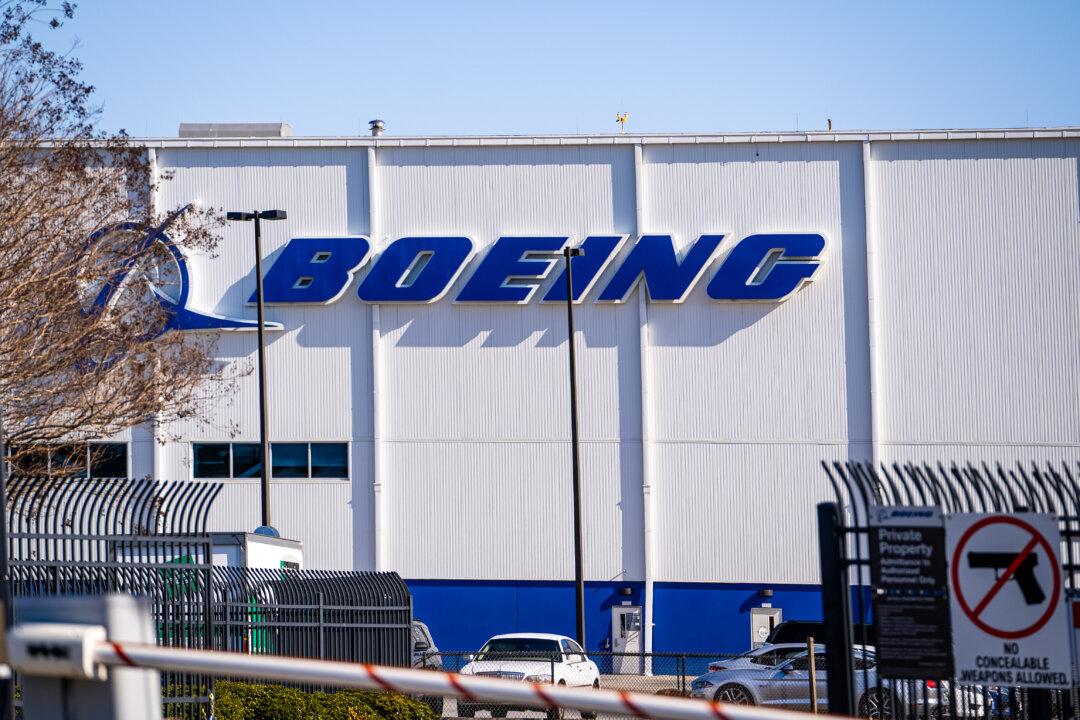Aircraft deliveries from Boeing almost halved quarterly amid quality concerns following an accident involving its aircraft in January.
In the first quarter of 2024, Boeing delivered a total of 83 commercial aircraft. This is down 47 percent from the 157 planes the company delivered in the prior quarter. The Boeing 737 model aircraft saw the largest decline, falling from 110 planes to 67. Deliveries of 767 and 787 models also went down. Boeing’s deliveries to the defense, space, and security industries declined from 54 to 14.





